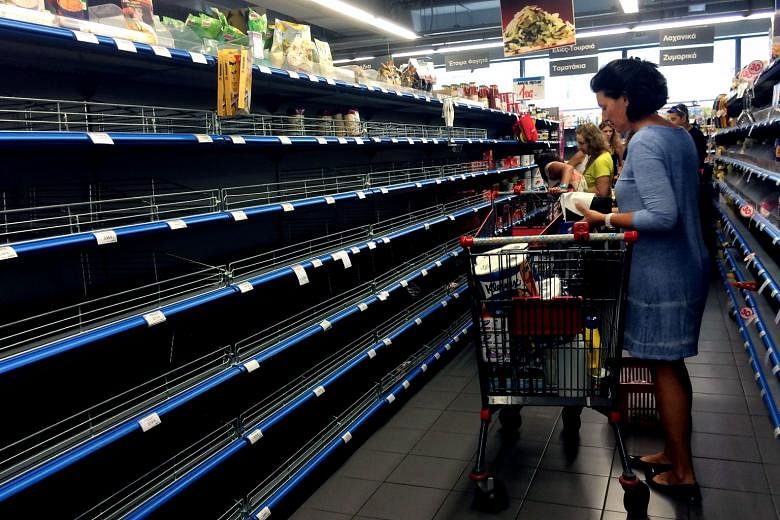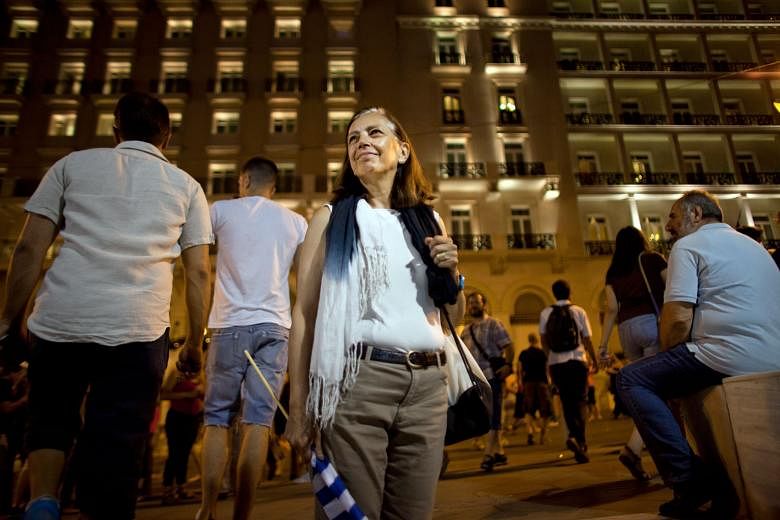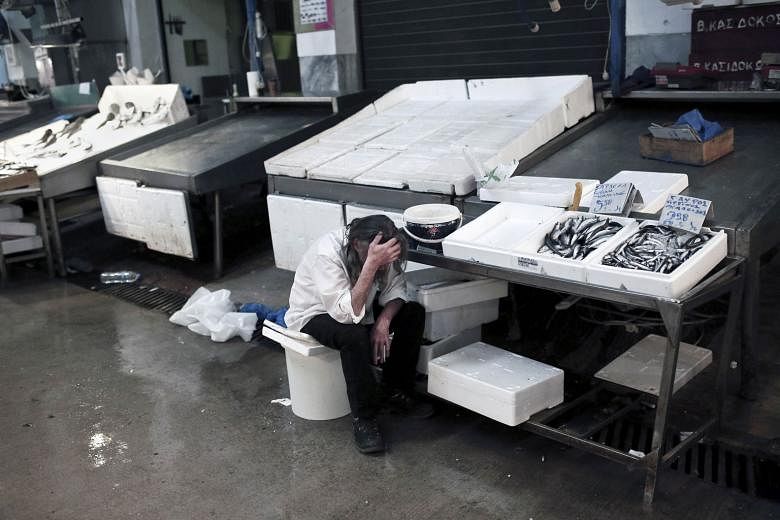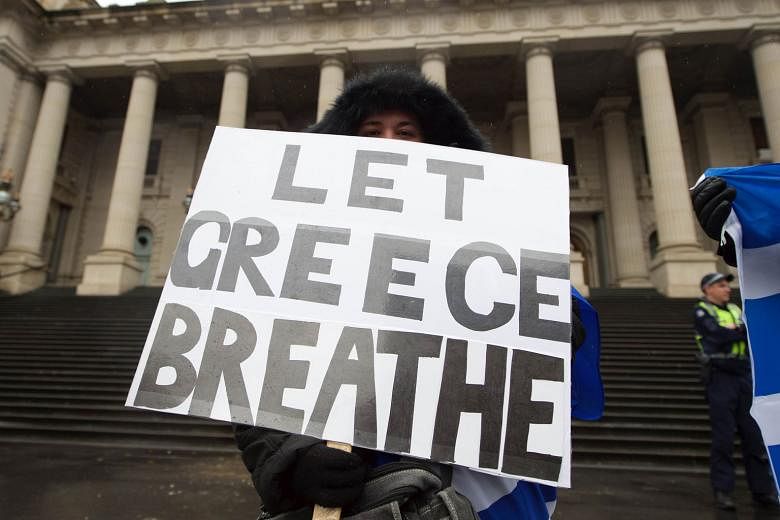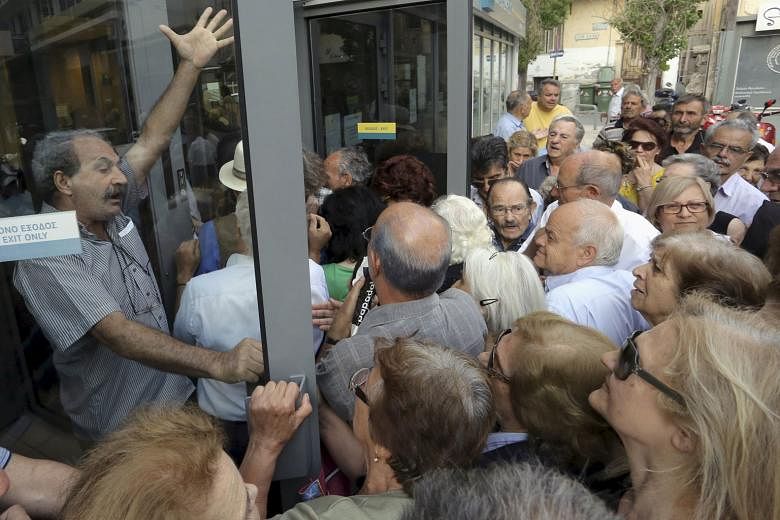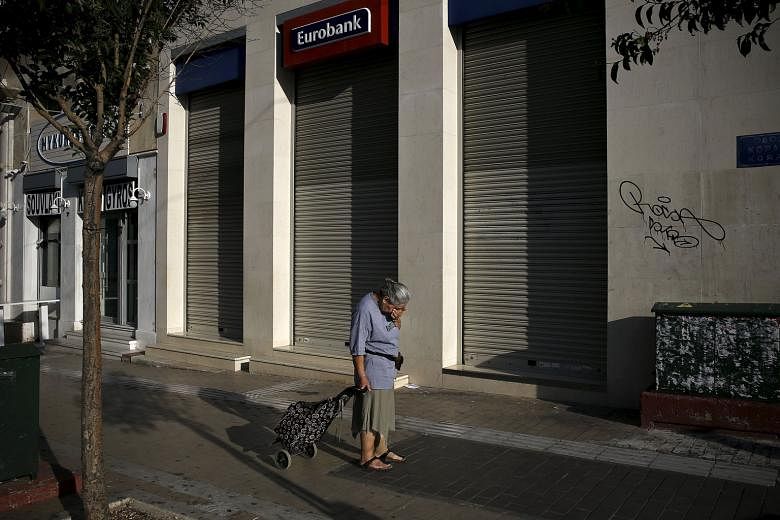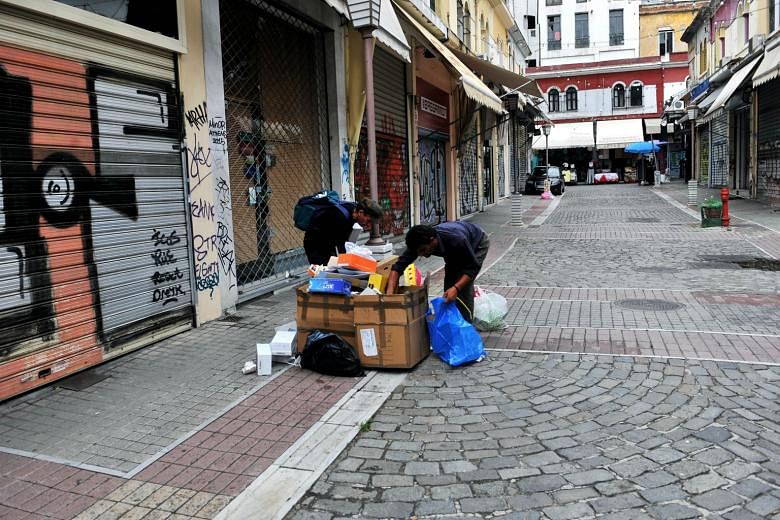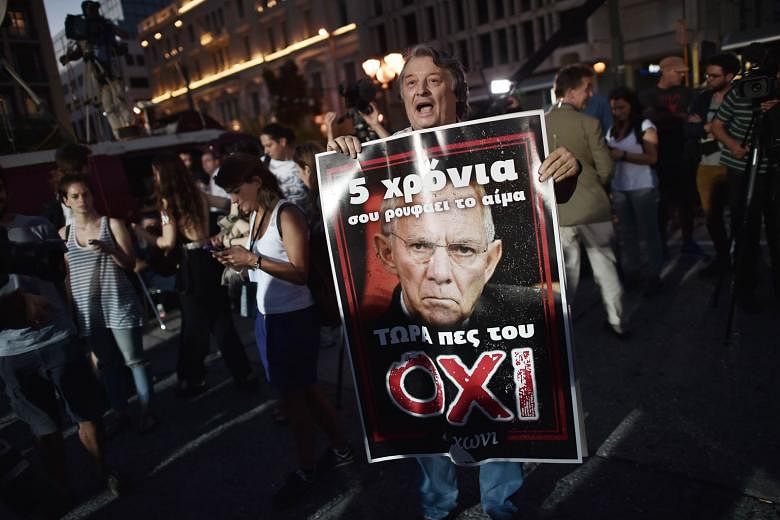ATHENS • For Ms Anthi Panagiotidou, who eagerly joined the mass of humanity with her daughter, Chrysa, voting no was a simple decision: After five years of austerity, she could not endure any more.
Ms Panagiotidou lost her job in an architectural firm and though she eventually found work, it was not at the same level. While rich Greeks send their children abroad for college, she said, she can barely pay for tutoring for her 17-year-old daughter to prepare for university entrance exams.
Her disabled husband cannot afford physical therapy and, what is worse, she said passionately, is that they are not alone.
"There are people without electricity, thousands without health insurance," she said as she welcomed the triumph of the vote against accepting a new bailout that includes more austerity demands.
Greece is like a sinking ship, Ms Panagiotidou said, and perhaps the referendum will force the rest of the world to pay attention.
The rest of Europe may see those who voted "no" as irresponsible and shortsighted, expecting the people of other countries to bail them out while they failed to make loan payments or to adapt to changes such as ending patronage, early retirement and tax evasion.
Yet voters on both the left and the right who chose "no" are prepared to deal with the consequences. They might become poorer, they said, but they would have nobody to blame but themselves and, even if the country's economy collapses, they prefer to go down fighting.
Mr Thalis Doukakis, 25, too voted "no". He has been doing odd jobs since he graduated from college with a film degree. His godmother supports him and his mother, who is a widow and a retired nurse.
He said he understood the consequences would be painful if Greece resorted to a currency like its previous one, the drachma, but he believed the outcome would be better in the long run. "It's better to have three or four worse years with the drachma than all these measures."
Ms Panagiotidou said some already feel as if they are living in a Third World country. In her native Lesbos, an island near Turkey, the public hospital is in such bad shape that people prefer to go to a German hospital in Turkey for even routine care like blood tests and dental work. In other words, she said, they do not hesitate to support the economy of a country that was an enemy state. "The Greeks are being pushed to go to Turkey, unbelievable."
For the middle class, some of the normal rhythms of life have been disrupted in small but disturbing ways. People complain that because of cash controls, which mean they may not send money abroad, they are unable even to order a book from Amazon.
Many middle-class people took their cash out of the banks months ago and stashed it at home.
But in the past few days, fearing further devastation in the Greek economy, they have begun counting their euros to determine just how much longer their cash will last. The people have also scrambled to hoard food amid mounting fears that the economy could collapse, stripping supermarket shelves in the process.
In the well-off area of Glyfada in the capital Athens, residents appeared to have panicked, thrusting everything from vast rolls of toilet paper to multiple packs of lentils into their carts. "Most people are buying food now because they fear the worst," said Mr Andreas Koutras, a 51-year old who works in finance.
Cash, too, is in short supply. A popular joke plays off the idea of a courtship that includes the promise: "I will take you to the best shops." Now the wooing must follow a new script: "I will take you to the best ATMs, sweetheart, where you will have the shortest lines."
Pensioners besieging bank gates to claim their retirement benefits, only to leave empty-handed and in tears, have become a symbol of the nation's dramatic fall.
Retiree Giorgos Chatzifotiadis, 77, a former foundry worker, made headlines around the world when he was snapped by a photographer sitting outside a bank, openly crying in despair, with his savings book and identity card on the floor.
He had queued up at three banks in Greece's second city of Thessaloniki last week in the hope of withdrawing a €120 (S$180) pension on behalf of his wife, but all in vain.
The signs of a country on the edge are not hard to miss. For five years, the city of Larissa - once an agricultural and transport hub - shrank as the country crumbled around it. First, the municipality fired all the cops. Then went all but three of its garbage men. At least 7,000 businesses shut down. A fourth of its workforce is jobless.
Mayor Apostolos Kalogiannis, 62, wonders how much worse it can get. "We used to be a strong city. Now you take a walk - the shops are closed, the people are sad," he said.
For the young people, the answer seems to be self-imposed exile.
"I don't see a future in Greece," said Mr Dani Iordake, 21, who was forced to drop out of university to work and help his mother pay the bills. "It's a beautiful country... (but) I couldn't imagine living here and struggling every day," he said.
Youth unemployment is nearly 50 per cent. More than 200,000 Greeks have quit the country since the financial crisis began in 2010, according to Endeavour Greece, a local chapter of an entrepreneurial promotional group.
Mr Christos Pennos left in 2013 and is now a university researcher in Norway. "My brother lives in Spain, my best friend in Germany. I have a lot of friends in Britain, Norway, Sweden, the Netherlands, Belgium, France and even in Poland," the 32-year-old said.
For Ms Panagiotidou, her no vote was a demand for understanding about what austerity had done to her family. "I cannot commit suicide because the outsiders want it," she said. "I am a European, and I always will be. But a Europe that strangles the people - I don't want her."
NEW YORK TIMES, BLOOMBERG, AGENCE FRANCE-PRESSE, REUTERS
